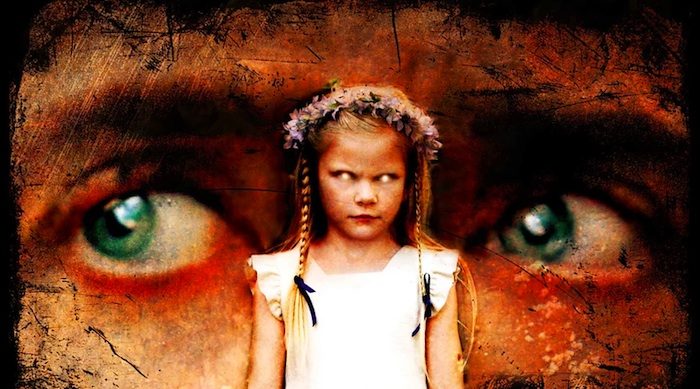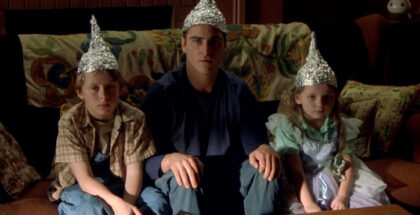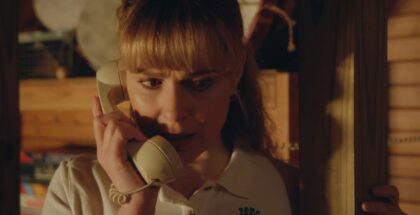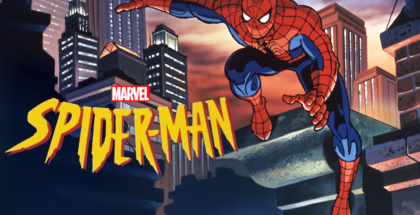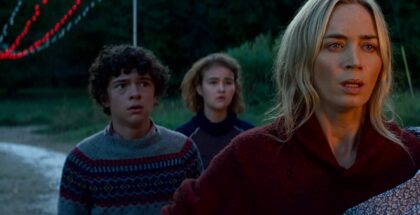In defence of Nic Cage’s The Wicker Man remake
Ian Loring | On 08, Jul 2016
We ask whether the 2006 version of The Wicker Man deserves a reassessment.
It is not often in cinema that you get a case of a perfect storm brewing but in 2006, Nicolas Cage and Neil LaBute took each other’s hands and walked straight into it with their ill-starred, ill-advised remake of The Wicker Man. The original, a film full of eerie power and an unsettling feel little matched, was such a one-of-a-kind oddity that maybe one-of-a-kind oddity himself Nicolas Cage felt a certain kinship with it. Neil LaBute coming on board was also something of promise – a famed though controversial filmmaker and playwright, his presence pre-release lent an air off credibility, which Cage was still just about emanating at the time, thanks to the recent Adaptation.
10 years later, their remake is known primarily for this:
Is this entirely fair? Yes and no…
Context is a crucial factor here. Much of what The Wicker Man is notorious for is content, which, within the world of the film itself, is not the laugh riot that meme suggests.
This image comes from the middle of a scene where our hero’s world has been completely shattered within the space of a few minutes. His newly discovered daughter has betrayed him, the mother of his child has turned her back on him and he is being tortured with creatures he is allergic to. It shouldn’t be funny, so why is it? Because it’s Nicolas Cage and a bunch of CGI bees. These two things when combined will result in laughing no matter what, and it is not this film’s fault that this is the case.
However.
How’d it get burned?
The bit where he punches out the landlady (which is actually really satisfying).
Stealing the bike.
Leelee Sobieski’s entire performance.
In trying to create a world which is deliberately off-kilter, LaBute gets his calculations wrong and makes events just a bit too entertaining to be disturbing. This is a damn shame, as there are moments in The Wicker Man remake, little nuggets peppered through the film, which hint at something that could have been far more successful.
In some moments, Cage is great. The changing of his character from Edward Woodward’s fussy, moralistic virgin to Edward Malus, a guy just looking to help an ex-lover, with a fine line in strangely endearing sarcasm means that when he’s not performing unintentional comedy, he’s really rather watchable. Ellen Burstyn, while not on screen much, has the same air of Christopher Lee’s authority and line in smug patter and goes into her role of Sister SummerIsle at full tilt.
There’s also a good deal of imagery that stands out. The bees may bring out the laughs with Cage, but some striking imagery of little girls covered in them lingers in the mind and the claustrophobic nature of the setting is well played throughout, the encroaching sense of doom, while not feeling quite as suffocating as the original, still playing out well. Angelo Badalamenti’s score also impresses, a sweeping piece with a number of memorable themes that grows in intensity.
The idea of Summer Isle’s matriarchal society is of interest as well, although LaBute’s penchant for misogyny does rear its head in the fact that, unlike the original, which never takes a judgement on whether the sacrifice will work, this clearly goes down a road suggesting that Burstyn knows in herself that there’s a good chance it won’t work.
The Wicker Man deserves a reassessment. While no match for the original, there is a uniqueness to the 2006 endeavour and a real sense that those involved were reaching for something, even if they never get there. It’s worth more than the one-star rating it has on Netflix, anyway. You wonder how it would be thought of now, if memes didn’t exist.


